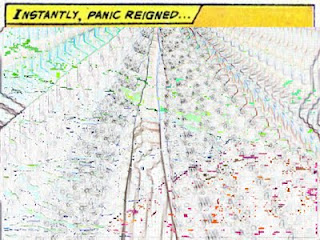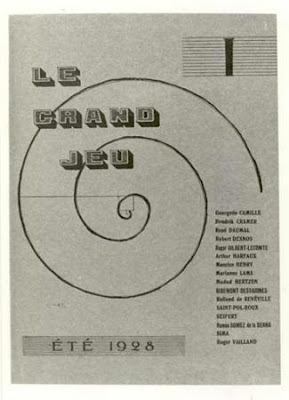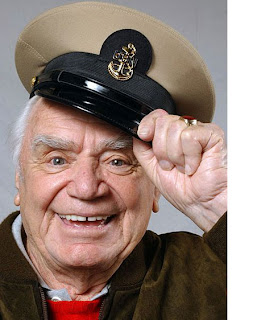 Editor's note: The following essay appeared in the December issue of The Progressive in 2001, and was reposted here at CommonDreams.orgshortly after, just three months following the events of September 11th. As Rudyard Kipling long ago and famously observed, you can recognize wisdom amidst crisis by locating those who 'keep their heads when all about are losing theirs.' Zinn's work is too vast and too incalculable to paraphrase or compile, but when you read his Violence Doesn't Work or Changing Obama's Mindset you easily recognize the wisdom and integrity of a man who saw beyond the hysteria of a moment. Howard Zinn, as Daniel Ellsberg has said, "was the best human being I've ever known. The best example of what a human can be, and can do with their life." We could not agree more.
Editor's note: The following essay appeared in the December issue of The Progressive in 2001, and was reposted here at CommonDreams.orgshortly after, just three months following the events of September 11th. As Rudyard Kipling long ago and famously observed, you can recognize wisdom amidst crisis by locating those who 'keep their heads when all about are losing theirs.' Zinn's work is too vast and too incalculable to paraphrase or compile, but when you read his Violence Doesn't Work or Changing Obama's Mindset you easily recognize the wisdom and integrity of a man who saw beyond the hysteria of a moment. Howard Zinn, as Daniel Ellsberg has said, "was the best human being I've ever known. The best example of what a human can be, and can do with their life." We could not agree more.
A Just Cause, Not a Just War (December, 2001)
I believe two moral judgments can be made about the present "war": The September 11 attack constitutes a crime against humanity and cannot be justified, and the bombing of Afghanistan is also a crime, which cannot be justified.
And yet, voices across the political spectrum, including many on the left, have described this as a "just war." One longtime advocate of peace, Richard Falk, wrote inThe Nation that this is "the first truly just war since World War II." Robert Kuttner, another consistent supporter of social justice, declared in The American Prospect that only people on the extreme left could believe this is not a just war.
I have puzzled over this. How can a war be truly just when it involves the daily killing of civilians, when it causes hundreds of thousands of men, women, and children to leave their homes to escape the bombs, when it may not find those who planned the September 11 attacks, and when it will multiply the ranks of people who are angry enough at this country to become terrorists themselves?
This war amounts to a gross violation of human rights, and it will produce the exact opposite of what is wanted: It will not end terrorism; it will proliferate terrorism.
I believe that the progressive supporters of the war have confused a "just cause" with a "just war." There are unjust causes, such as the attempt of the United States to establish its power in Vietnam, or to dominate Panama or Grenada, or to subvert the government of Nicaragua. And a cause may be just--getting North Korea to withdraw from South Korea, getting Saddam Hussein to withdraw from Kuwait, or ending terrorism--but it does not follow that going to war on behalf of that cause, with the inevitable mayhem that follows, is just.
The stories of the effects of our bombing are beginning to come through, in bits and pieces. Just eighteen days into the bombing, The New York Times reported: "American forces have mistakenly hit a residential area in Kabul." Twice, U.S. planes bombed Red Cross warehouses, and a Red Cross spokesman said: "Now we've got 55,000 people without that food or blankets, with nothing at all."
An Afghan elementary school-teacher told a Washington Post reporter at the Pakistan border: "When the bombs fell near my house and my babies started crying, I had no choice but to run away."
A New York Times report: "The Pentagon acknowledged that a Navy F/A-18 dropped a 1,000-pound bomb on Sunday near what officials called a center for the elderly. . . . The United Nations said the building was a military hospital. . . . Several hours later, a Navy F-14 dropped two 500-pound bombs on a residential area northwest of Kabul." A U.N. official told a New York Times reporter that an American bombing raid on the city of Herat had used cluster bombs, which spread deadly "bomblets" over an area of twenty football fields. This, the Times reporter wrote,"was the latest of a growing number of accounts of American bombs going astray and causing civilian casualties."
An A.P. reporter was brought to Karam, a small mountain village hit by American bombs, and saw houses reduced to rubble. "In the hospital in Jalalabad, twenty-five miles to the east, doctors treated what they said were twenty-three victims of bombing at Karam, one a child barely two months old, swathed in bloody bandages," according to the account. "Another child, neighbors said, was in the hospital because the bombing raid had killed her entire family. At least eighteen fresh graves were scattered around the village."
The city of Kandahar, attacked for seventeen straight days, was reported to be a ghost town, with more than half of its 500,000 people fleeing the bombs. The city's electrical grid had been knocked out. The city was deprived of water, since the electrical pumps could not operate. A sixty-year-old farmer told the A.P. reporter, "We left in fear of our lives. Every day and every night, we hear the roaring and roaring of planes, we see the smoke, the fire. . . . I curse them both--the Taliban and America."
A New York Times report from Pakistan two weeks into the bombing campaign told of wounded civilians coming across the border. "Every half-hour or so throughout the day, someone was brought across on a stretcher. . . . Most were bomb victims, missing limbs or punctured by shrapnel. . . . A young boy, his head and one leg wrapped in bloodied bandages, clung to his father's back as the old man trudged back to Afghanistan."
That was only a few weeks into the bombing, and the result had already been to frighten hundreds of thousands of Afghans into abandoning their homes and taking to the dangerous, mine-strewn roads. The "war against terrorism" has become a war against innocent men, women, and children, who are in no way responsible for the terrorist attack on New York.
And yet there are those who say this is a "just war."
Terrorism and war have something in common. They both involve the killing of innocent people to achieve what the killers believe is a good end. I can see an immediate objection to this equation: They (the terrorists) deliberately kill innocent people; we (the war makers) aim at "military targets," and civilians are killed by accident, as "collateral damage."
Is it really an accident when civilians die under our bombs? Even if you grant that the intention is not to kill civilians, if they nevertheless become victims, again and again and again, can that be called an accident? If the deaths of civilians are inevitable in bombing, it may not be deliberate, but it is not an accident, and the bombers cannot be considered innocent. They are committing murder as surely as are the terrorists.
The absurdity of claiming innocence in such cases becomes apparent when the death tolls from "collateral damage" reach figures far greater than the lists of the dead from even the most awful act of terrorism. Thus, the "collateral damage" in the Gulf War caused more people to die--hundreds of thousands, if you include the victims of our sanctions policy--than the very deliberate terrorist attack of September 11. The total of those who have died in Israel from Palestinian terrorist bombs is somewhere under 1,000. The number of dead from "collateral damage" in the bombing of Beirut during Israel's invasion of Lebanon in 1982 was roughly 6,000.
We must not match the death lists--it is an ugly exercise--as if one atrocity is worse than another. No killing of innocents, whether deliberate or "accidental," can be justified. My argument is that when children die at the hands of terrorists, or--whether intended or not--as a result of bombs dropped from airplanes, terrorism and war become equally unpardonable.
Let's talk about "military targets." The phrase is so loose that President Truman, after the nuclear bomb obliterated the population of Hiroshima, could say: "The world will note that the first atomic bomb was dropped on Hiroshima, a military base. That was because we wished in this first attack to avoid, insofar as possible, the killing of civilians."
What we are hearing now from our political leaders is, "We are targeting military objectives. We are trying to avoid killing civilians. But that will happen, and we regret it." Shall the American people take moral comfort from the thought that we are bombing only "military targets"?
The reality is that the term "military" covers all sorts of targets that include civilian populations. When our bombers deliberately destroy, as they did in the war against Iraq, the electrical infrastructure, thus making water purification and sewage treatment plants inoperable and leading to epidemic waterborne diseases, the deaths of children and other civilians cannot be called accidental.
Recall that in the midst of the Gulf War, the U.S. military bombed an air raid shelter, killing 400 to 500 men, women, and children who were huddled to escape bombs. The claim was that it was a military target, housing a communications center, but reporters going through the ruins immediately afterward said there was no sign of anything like that.
I suggest that the history of bombing--and no one has bombed more than this nation--is a history of endless atrocities, all calmly explained by deceptive and deadly language like "accident," "military targets," and "collateral damage."
Indeed, in both World War II and in Vietnam, the historical record shows that there was a deliberate decision to target civilians in order to destroy the morale of the enemy--hence the firebombing of Dresden, Hamburg, Tokyo, the B-52s over Hanoi, the jet bombers over peaceful villages in the Vietnam countryside. When some argue that we can engage in "limited military action" without "an excessive use of force," they are ignoring the history of bombing. The momentum of war rides roughshod over limits.
The moral equation in Afghanistan is clear. Civilian casualties are certain. The outcome is uncertain. No one knows what this bombing will accomplish--whether it will lead to the capture of Osama Bin Laden (perhaps), or the end of the Taliban (possibly), or a democratic Afghanistan (very unlikely), or an end to terrorism (almost certainly not).
And meanwhile, we are terrorizing the population (not the terrorists, they are not easily terrorized). Hundreds of thousands are packing their belongings and their children onto carts and leaving their homes to make dangerous journeys to places they think might be more safe.
Not one human life should be expended in this reckless violence called a "war against terrorism."
We might examine the idea of pacifism in the light of what is going on right now. I have never used the word "pacifist" to describe myself, because it suggests something absolute, and I am suspicious of absolutes. I want to leave openings for unpredictable possibilities. There might be situations (and even such strong pacifists as Gandhi and Martin Luther King believed this) when a small, focused act of violence against a monstrous, immediate evil would be justified.
In war, however, the proportion of means to ends is very, very different. War, by its nature, is unfocused, indiscriminate, and especially in our time when the technology is so murderous, inevitably involves the deaths of large numbers of people and the suffering of even more. Even in the "small wars" (Iran vs. Iraq, the Nigerian war, the Afghan war), a million people die. Even in a "tiny" war like the one we waged in Panama, a thousand or more die.
Scott Simon of NPR wrote a commentary in The Wall Street Journal on October 11 entitled, "Even Pacifists Must Support This War." He tried to use the pacifist acceptance of self-defense, which approves a focused resistance to an immediate attacker, to justify this war, which he claims is "self-defense." But the term "self-defense" does not apply when you drop bombs all over a country and kill lots of people other than your attacker. And it doesn't apply when there is no likelihood that it will achieve its desired end.
Pacifism, which I define as a rejection of war, rests on a very powerful logic. In war, the means--indiscriminate killing--are immediate and certain; the ends, however desirable, are distant and uncertain.
Pacifism does not mean "appeasement." That word is often hurled at those who condemn the present war on Afghanistan, and it is accompanied by references to Churchill, Chamberlain, Munich. World War II analogies are conveniently summoned forth when there is a need to justify a war, however irrelevant to a particular situation. At the suggestion that we withdraw from Vietnam, or not make war on Iraq, the word "appeasement" was bandied about. The glow of the "good war" has repeatedly been used to obscure the nature of all the bad wars we have fought since 1945.
Let's examine that analogy. Czechoslovakia was handed to the voracious Hitler to "appease" him. Germany was an aggressive nation expanding its power, and to help it in its expansion was not wise. But today we do not face an expansionist power that demands to be appeased. We ourselves are the expansionist power--troops in Saudi Arabia, bombings of Iraq, military bases all over the world, naval vessels on every sea--and that, along with Israel's expansion into the West Bank and Gaza Strip, has aroused anger.
It was wrong to give up Czechoslovakia to appease Hitler. It is not wrong to withdraw our military from the Middle East, or for Israel to withdraw from the occupied territories, because there is no right to be there. That is not appeasement. That is justice.
Opposing the bombing of Afghanistan does not constitute "giving in to terrorism" or "appeasement." It asks that other means be found than war to solve the problems that confront us. King and Gandhi both believed in action--nonviolent direct action, which is more powerful and certainly more morally defensible than war.
To reject war is not to "turn the other cheek," as pacifism has been caricatured. It is, in the present instance, to act in ways that do not imitate the terrorists.
The United States could have treated the September 11 attack as a horrific criminal act that calls for apprehending the culprits, using every device of intelligence and investigation possible. It could have gone to the United Nations to enlist the aid of other countries in the pursuit and apprehension of the terrorists.
There was also the avenue of negotiations. (And let's not hear: "What? Negotiate with those monsters?" The United States negotiated with--indeed, brought into power and kept in power--some of the most monstrous governments in the world.) Before Bush ordered in the bombers, the Taliban offered to put bin Laden on trial. This was ignored. After ten days of air attacks, when the Taliban called for a halt to the bombing and said they would be willing to talk about handing bin Laden to a third country for trial, the headline the next day in The New York Times read: "President Rejects Offer by Taliban for Negotiations," and Bush was quoted as saying: "When I said no negotiations, I meant no negotiations."
That is the behavior of someone hellbent on war. There were similar rejections of negotiating possibilities at the start of the Korean War, the war in Vietnam, the Gulf War, and the bombing of Yugoslavia. The result was an immense loss of life and incalculable human suffering.
International police work and negotiations were--still are--alternatives to war. But let's not deceive ourselves; even if we succeeded in apprehending bin Laden or, as is unlikely, destroying the entire Al Qaeda network, that would not end the threat of terrorism, which has potential recruits far beyond Al Qaeda.
To get at the roots of terrorism is complicated. Dropping bombs is simple. It is an old response to what everyone acknowledges is a very new situation. At the core of unspeakable and unjustifiable acts of terrorism are justified grievances felt by millions of people who would not themselves engage in terrorism but from whose ranks terrorists spring.
Those grievances are of two kinds: the existence of profound misery-- hunger, illness--in much of the world, contrasted to the wealth and luxury of the West, especially the United States; and the presence of American military power everywhere in the world, propping up oppressive regimes and repeatedly intervening with force to maintain U.S. hegemony.
This suggests actions that not only deal with the long-term problem of terrorism but are in themselves just.
Instead of using two planes a day to drop food on Afghanistan and 100 planes to drop bombs (which have been making it difficult for the trucks of the international agencies to bring in food), use 102 planes to bring food.
Take the money allocated for our huge military machine and use it to combat starvation and disease around the world. One-third of our military budget would annually provide clean water and sanitation facilities for the billion people in the world who have none.
Withdraw troops from Saudi Arabia, because their presence near the holy shrines of Mecca and Medina angers not just bin Laden (we need not care about angering him) but huge numbers of Arabs who are not terrorists.
Stop the cruel sanctions on Iraq, which are killing more than a thousand children every week without doing anything to weaken Saddam Hussein's tyrannical hold over the country.
Insist that Israel withdraw from the occupied territories, something that many Israelis also think is right, and which will make Israel more secure than it is now.
In short, let us pull back from being a military superpower, and become a humanitarian superpower.
Let us be a more modest nation. We will then be more secure. The modest nations of the world don't face the threat of terrorism.
Such a fundamental change in foreign policy is hardly to be expected. It would threaten too many interests: the power of political leaders, the ambitions of the military, the corporations that profit from the nation's enormous military commitments.
Change will come, as at other times in our history, only when American citizens-- becoming better informed, having second thoughts after the first instinctive support for official policy--demand it. That change in citizen opinion, especially if it coincides with a pragmatic decision by the government that its violence isn't working, could bring about a retreat from the military solution.
It might also be a first step in the rethinking of our nation's role in the world. Such a rethinking contains the promise, for Americans, of genuine security, and for people elsewhere, the beginning of hope.
© 2010 The Progressive

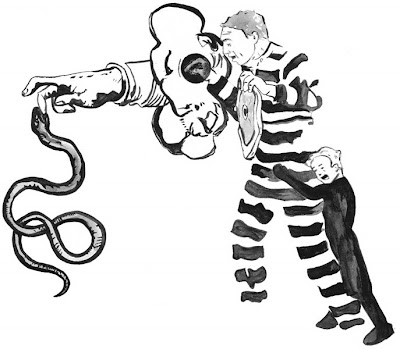













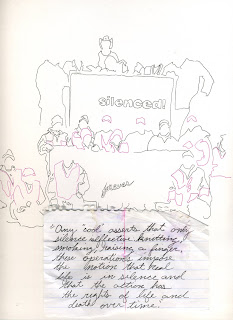

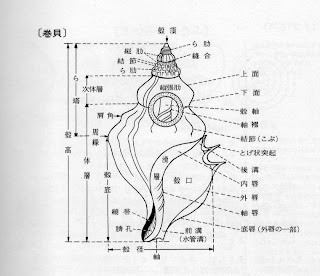




![nuclear_weapons.jpg []](http://www.commondreams.org/files/article_images/nuclear_weapons.jpg)



